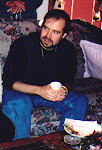Thursday, March 21, 2013
Count of Monte Cristo
Well, I am finally reading it.
This was among the very first downloads I ever made on my Kindle. My original Kindle had it first when I received it as the best gift ever about five years ago. The Count of Monte Cristo awaited my attention during the entire life-span of that device until its demise on the same day Osama Bin Laden found his end in May of 2011 (you can read about that here http://25booksayear.blogspot.com/2011/05/sunday-bloody-sunday.html).
The book was then resurrected on my new Kindle and awaited its time patiently, forgotten and burdened by solitude. Only now, as I embark on many new journeys of my own, does it finally illuminate itself to me in e-ink. And, much like Edmond Dantes, it strikes out at me with great vengeance and furious anger. (like this...)
I love this book already. I am so disappointed to miss our first book club meeting about this great work, and so I offer my thoughts for consideration here. I will happily miss to attend to Jacob's seventh birthday celebration (Happy Birthday, Cub!), but I would love to talk about the book.
Baggs and I watched The Count of Monte Cristo in the movie theater in 2002 as I was preparing to move away to attend law school. I remember having reservations about the movie when we bought tickets and wondering if it would be worth an evening. But, my most vivid memory was walking out of the theater completely blown away by the story. I remember learning that Alexandre Dumas had also written The Three Musketeers and wondering, "why is THAT his most famous work?" To be fair, I had read neither of Dumas' books, but The Count of Monte Cristo struck me as such a compelling and deeply-philosophical and human story that I just could not imagine it being topped.
So far, the book is even better. As of this writing, I am only a little more than half-way through the assigned chapters for Saturday's meeting, but Dumas has hooked me.
Although this book seems a story of revenge, I think it is better described as a consideration of the merits of revenge in relation to grace. Dantes and his neighbor Faria discuss that very dilemma. It was grace that led Faria to let Dantes know about the treasure. Dantes had vowed revenge, but also loyalty and honor.
The clash of those vows will clearly drive the story. I know how the movie handled it, but I am anxious to see how Dumas handles that over 1200 pages. So far it is a quick and engrossing read.
The book group has chosen this "big book" and I think it is the best possible way to devour a masterpiece. I am convinced I would not have enjoyed War & Peace without regularly revisiting it with the group or talking it through over lunches or on chat with Dave or others individually. That book is now my second-rated book ever.
The Count of Monte Cristo will not be nearly as complicated as War & Peace, and will probably not require anything close to the analysis, but I look forward to discussing the conflicting values of the vows made by Dantes.
Much like W&P, this book also involves Napoleon and sets the story at a historically-interesting time. I really like how things change as the political winds shift. The definition of treason changes with the powers that be while the crimes of some morph from treacherous to heroic and back again.
I also was interested by the transitional legal outlook. There seems to be an expectation of fair and impartial trials and due process at a time when enforcement of those concepts was a new and unfamiliar (ineffective?) idea. That fascinated me. It struck me as a primitive time in the history of humanity's legal evolution. I could not get over that. Everyone expected fair treatment, but institutional enforcement of those equitable processes was clearly lacking (What? No appeal option?). I may be a nerd, but that was neat to follow.
Finally, I was surprised at how enjoyable the writing was. Translated books can be a struggle, but I think Dumas keeps things simple and the story moves fast despite the book's length (early-on at least). I cannot wait for the second meeting.
My favorite quotes so far:
"He who has a partner has a master."
"Then the first pangs of an unending torture seized upon his heart."
"Danglers was one of those men born with a pen behind the ear, and an ink stain in place of a heart."
"In politics, my dear fellow, you know, as well as I do, there are no men, but ideas - no feelings, but interests; in politics we do not kill a man, we only remove an obstacle, that is all."
"I found out that with one hundred and fifty well-chosen books a man possesses, if not a complete summary of all human knowledge, at least all that a man need really know."
"... to learn is not to know; there are learners and the learned. Memory makes the one, philosophy the other."
"But now I have forgiven the world for the love of you."
Subscribe to:
Post Comments (Atom)





No comments:
Post a Comment